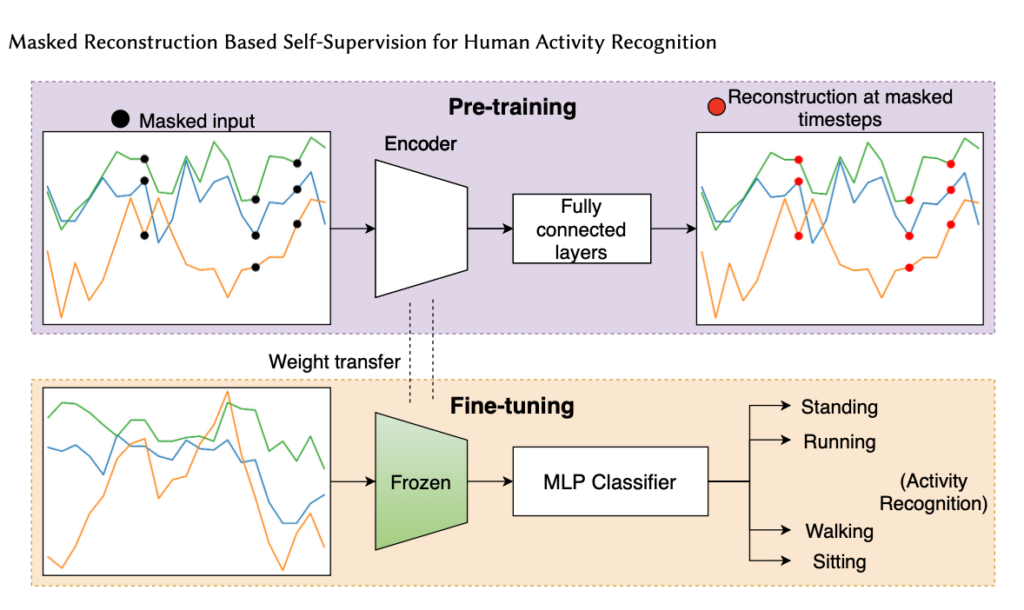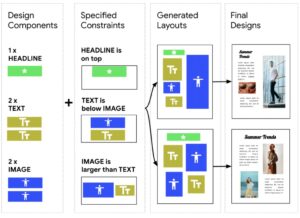Paper in ISWC 2020 on “Masked reconstruction based self-supervision for human activity recognition”
Citation
Abstract
The ubiquitous availability of wearable sensing devices has rendered large scale collection of movement data a straightforward endeavor. Yet, annotation of these data remains a challenge and as such, publicly available datasets for human activity recognition (HAR) are typically limited in size as well as in variability, which constrains HAR model training and effectiveness. We introduce masked reconstruction as a viable self-supervised pre-training objective for human activity recognition and explore its effectiveness in comparison to state-of-the-art unsupervised learning techniques. In scenarios with small labeled datasets, the pre-training results in improvements over end-to-end learning on two of the four benchmark datasets. This is promising because the pre-training objective can be integrated "as is" into state-of-the-art recognition pipelines to effectively facilitate improved model robustness, and thus, ultimately, leading to better recognition performance.

Links
- https://dl.acm.org/doi/10.1145/3410531.3414306
- https://harkash.github.io/publication/masked-reconstruction
- https://arxiv.org/abs/2202.12938
- doi:10.1145/3410531.3414306
BibTeX (Download)
@inproceedings{2020-Haresamudram-MRBSHAR,
title = {Masked reconstruction based self-supervision for human activity recognition},
author = {Harish Haresamudram and Apoorva Beedu and Varun Agrawal and Patrick L Grady and Irfan Essa and Judy Hoffman and Thomas Plötz},
url = {https://dl.acm.org/doi/10.1145/3410531.3414306
https://harkash.github.io/publication/masked-reconstruction
https://arxiv.org/abs/2202.12938},
doi = {10.1145/3410531.3414306},
year = {2020},
date = {2020-09-01},
urldate = {2020-09-01},
booktitle = {Proceedings of the International Symposium on Wearable Computers (ISWC)},
pages = {45--49},
abstract = {The ubiquitous availability of wearable sensing devices has rendered large scale collection of movement data a straightforward endeavor. Yet, annotation of these data remains a challenge and as such, publicly available datasets for human activity recognition (HAR) are typically limited in size as well as in variability, which constrains HAR model training and effectiveness. We introduce masked reconstruction as a viable self-supervised pre-training objective for human activity recognition and explore its effectiveness in comparison to state-of-the-art unsupervised learning techniques. In scenarios with small labeled datasets, the pre-training results in improvements over end-to-end learning on two of the four benchmark datasets. This is promising because the pre-training objective can be integrated "as is" into state-of-the-art recognition pipelines to effectively facilitate improved model robustness, and thus, ultimately, leading to better recognition performance.
},
keywords = {activity recognition, ISWC, machine learning, wearable computing},
pubstate = {published},
tppubtype = {inproceedings}
}

